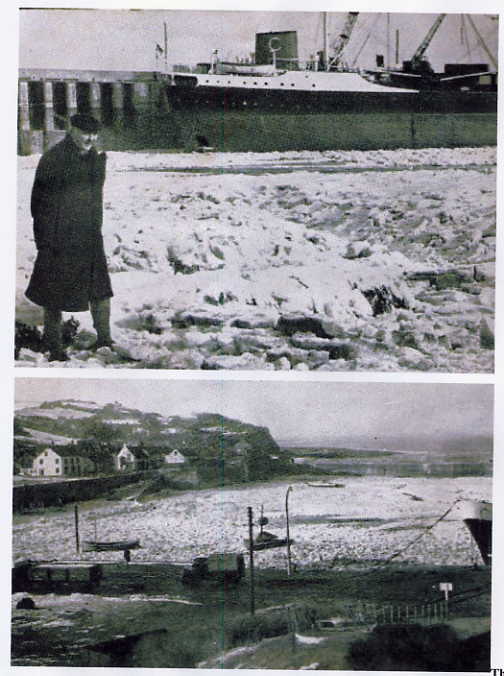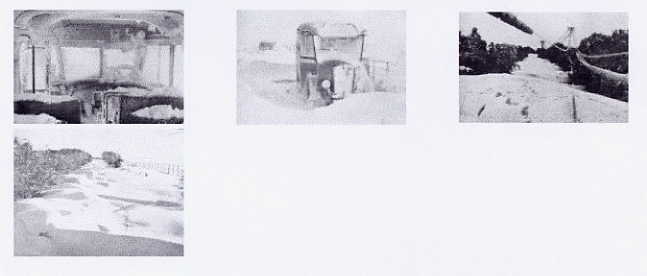
Kevin writes of the 1947 winter
"The first three months of 1947 brought a paralysis of blizzard
and freeze...regarded by many as nature's dirty trick on war tired people,
on a country trying to struggle back to a semblance of peacetime conditions.
Many Exmoor people are disposed to rank this time as the bitter equivalent
of 1963, and to dispute the claim that the latter was "the winter
of the century". Certainly 1947 produced a longer period of freeze.
Albert Williams, Williton Division highway surveyor, said that when the
ice age ended 'my men have been sheeted in ice, had icicles hanging
from their ears and gathering on their brows, telegraph poles have been
iced to twice their normal width and electricity cables have measured
7 inches in diameter.'
The blizzards late in January and through February and March prompted
weather correspondents to claim that this was the worst winter since the
1881 killer.
Arctic conditions had come in with the new year, there were 42 days and
nights of frost, with three exceptionally violent blizzards on January
28th, February 23rd
and 4th March. The last was
a fall of 37 hours, the longest of the period. The freeze gripping all
of Europe, was classed as the most severe, to say the least, there had
been 59 days of frost from November 25th to January 22nd. There were sea
freezes and ice floes on the country's great rivers, including the Severn.
At Newcastle a family of six were killed when their back boiler exploded,
frozen as it was, and went off like a hand grenade.
Ice breakers had to free canal traffic and reservoirs had a foot of ice
on top."
